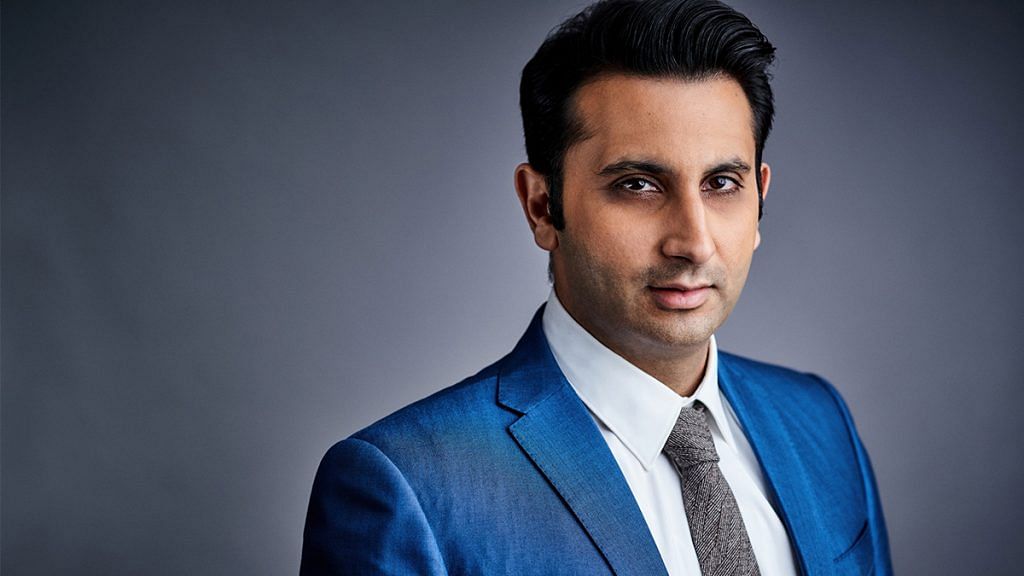New Delhi: India is set to begin trials, within the next two weeks, to determine if the bacille Calmette-Guérin (BCG) vaccine can boost immunity in the fight against Covid-19, Adar Poonawalla, CEO, Serum Institute of India (SII) told ThePrint.
The BCG is a vaccine for tuberculosis and is administered at birth in countries such as India, which have historically had a high prevalence of the disease.
“We are likely to start the study within two weeks from now to check if BCG shots reduce the severity of Covid-19 in India,” Poonawalla said. “The ideal geography to start trials is Italy and the US but we are facing fund shortages there. Here, we are expecting fund release from the Indian government.”
The company is likely to start the trials in Maharashtra, particularly Pune, and it will involve at least 2,000 to 3,000 “high-risk” people. It is set to administer a recombinant BCG vaccine to the high-risk category that includes the elderly, people with co-morbid conditions and healthcare workers.
“These people will be compared against the placebos,” Poonawalla said. “For instance, healthcare workers will be given vaccine shots and will be checked against another set of healthcare workers working next to them but without the vaccine.”
According to a study conducted by medical researchers in the US and UK, which analysed data from 178 countries, “countries that do not have a BCG vaccination policy saw ten times greater incidence of and mortality from Covid-19, compared with those who do”.
Some of the worst Covid-19 affected countries such as the US and Italy don’t administer the BCG vaccine as a part of their vaccination policy.
Poonawalla said that if the tests are successful, the recombinant vaccine will be out in the market soon.
“If the study yields positive results, the vaccine could be in markets by the end of this year,” said Poonawalla, the son of Dr. Cyrus Poonawalla, the SII founder popularly known as the “vaccine king”.
The SII is the world’s largest manufacturer of vaccines by number of doses produced and sold globally. It manufactures a variety of vaccines including for polio, diphtheria, tetanus and BCG. It is estimated that about 65 per cent of the children in the world receive at least one vaccine manufactured by the firm.
Also read: Only 1 in 24 Indians testing positive for Covid, ICMR says this shows our strategy’s working
‘BCG safer than HCQ, anti-HIV drugs’
Poonawalla said that if the BCG vaccine proves its efficacy against Covid-19, it will provide a far safer alternative as it lacks side effects.
“It can be given to a newborn baby because it is very mild,” he said. “It is safer than prescribing any anti-retrovirals or Hydroxychloroquine, which have several side-effects.”
“The objective of these trials is to reduce the severity of Covid-19 cases in India assuming that the vaccine will help prepare the bodies better and boost immunity to fight the coronavirus invasion,” he added.
The vaccine is not an ultimate solution but only an attempt to reduce the severity of the cases, Poonawalla said.
He added that SII has tied up with two companies in the US to develop a Covid-19 vaccine. “We are also involved in manufacturing a vaccine against Covid-19. We are conducting animal trials with mice and primates,” he said. “The company hopes to start clinical trials in around a month in India. By the year end, our vaccine candidate will be ready.”
On the medical trials going on around the world for new medicines, Poonawalla said there have been “mixed results” that aren’t very promising. “Drugs that are showing some amount of efficacy in 10 or more days are not very promising. It is a very long period and anyone can recover by themselves or the body’s own immunity,” he said. “It will be substantial if any drug works on severe to mild cases within three to four days. Otherwise, until now, everything is just conjecture.”
Also read: Azithromycin, paracetamol, other APIs see upto 190% price jump as China resumes production
‘Cases will surge post lockdown, but no need for panic’
Poonawalla said cases will surge after the lockdown but warned that multiple lockdowns are not a solution.
“At least 20 per cent of the Indian population (around 26 crores) will get infected with this virus in another 2-3 years but fatalities will be less than 1 per cent,” he said.
He also advocated against prolonging the lockdown.
“Lockdown was done to prepare the health system and draft strategies. It’s been done now,” he said. “I don’t think it should be continued post 3 May. Multiple lockdowns will cripple the economy to a point from where there will be no return.”
He further said that a healthy workforce must be allowed to go out. “Undoubtedly, once the lockdown will open up, the surge in cases will be noticed. But there is no need for panic,” Poonawalla said. “Continued lockdown is not the right response. People in India have gained immunity against H1N1 and measles by going out and exposing themselves. Lifting lockdown in a phased manner is a good idea.”
Also read: Inform public not to use HCQ and azithromycin without prescription, Modi govt tells states
